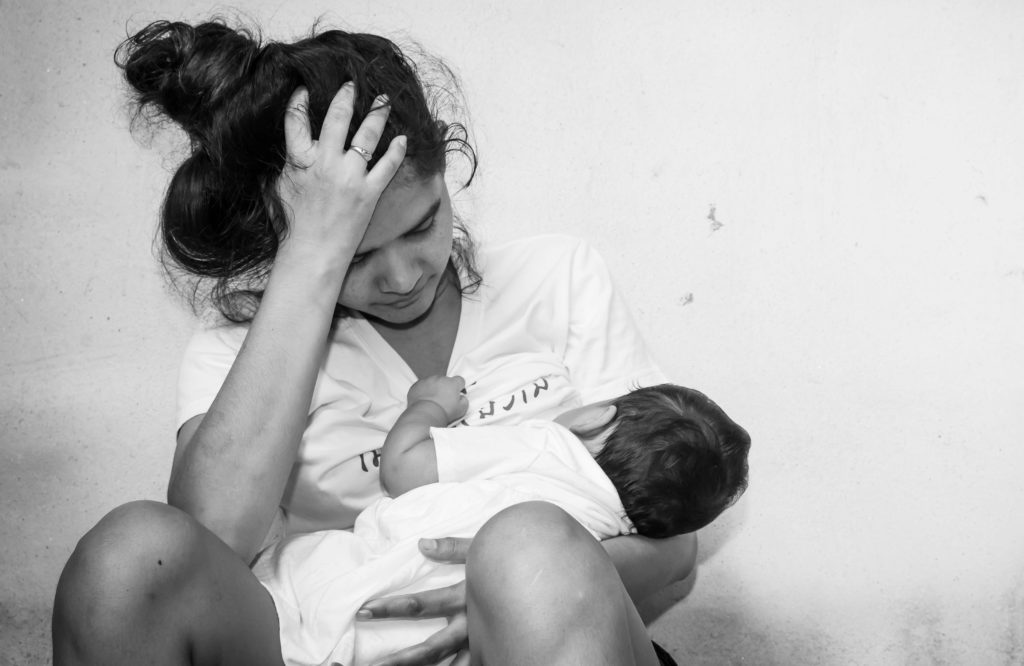LISTEN TO THIS ARTICLE:
About 134 million births globally occurred in 2023.4 The number of annual births has been consistent in recent years. However, the number of cases of postpartum depression and postpartum anxiety have been rising. It is estimated that up to 20% of women in the United States who give birth will suffer from some type of post-natal depression or anxiety. Fortunately, prevention and treatment of PPD is a very active area of research. One new study is revealing that early identification and treatment before expectant mothers give birth can be very effective. 1234
What is Postpartum Depression?
Postpartum Depression (PPD) is a type of depression that happens after someone gives birth, but it can also affect surrogates and adoptive parents as well. It is a medical condition that affects approximately 1 in 7 women in the United States. While there are several types of PPD, overall, the condition is marked by changing moods, frequent crying spells, and loneliness. Postpartum blues or baby blues usually takes hold 1-4 days after delivery and subsides, usually, within 2 weeks without treatment. Those suffering through baby blues may have frequent bouts of crying, sadness, and depression. PPD is more serious.
Postpartum depression shares symptoms with major depression, such as crying spells, insomnia, depressed mood, fatigue, anxiety, and poor concentration. Women experience severe irritability and depression within 4 weeks of giving birth. Most severe is Postpartum Psychosis, which is a stark form of PPD and requires emergency medical attention. It is a rare condition, affecting 1 in 1,000 people and occurs quickly after delivery. It can last for a few weeks or several months. Symptoms include mania, psychotic thoughts, and severe depression.
PPD treatment interventions
A new study is offering promising results for the treatment of PPD. “Results from a large clinical trial funded by the National Institutes of Health show that an intervention for anxiety provided to pregnant women living in Pakistan significantly reduced the likelihood of the women developing moderate-to-severe anxiety, depression, or both six weeks after birth.”3 These results indicate that intervention pre-birth can lower the rate of PPD post-birth especially in “low-resource” settings, even intervention from “non-specialized providers.” Joshua A. Gordon, M.D., Ph.D., Director of the National Institute of Mental Health, states that, “this study shows that non-specialists could help to fill this gap, providing care to more women during this critical period.”3
The study was conducted in the Punjab Province of Pakistan between April 2019 and January 2022 by researchers from Johns Hopkins Bloomberg School of Public Health. “Pregnant women with symptoms of at least mild anxiety were randomly assigned to receive either routine pregnancy care or a cognitive behavioral therapy (CBT)-based intervention called Happy Mother-Healthy Baby. The researchers assessed the participants (380 women in the CBT group and 375 women in the routine care group) for anxiety and depression six weeks after the birth of their child.”3
Study results
The study showed that women in the CBT group developed less anxiety and depression post birth than those in the routine care group, but overall, the interventions for both groups proved promising in reducing PPD in this population of mothers. Women who took part in the study attended 6 intervention session at a hospital in Rawalpindi, Pakistan. These participants attended 5 sessions early to mid-pregnancy, with the final session taking place in the third trimester. “[T]hey learned to identify anxious thoughts and behaviors, such as thoughts about possible miscarriage, and to practice replacing them with helpful thoughts and behaviors.”3
“’Postpartum depression not only harms mothers, it is also associated with poorer physical growth and delayed cognitive development in their children,’ said Dr. Surkan, [lead researcher for the study]. ‘The link between maternal and child health highlights the critical importance of developing effective ways to address postpartum anxiety and depression.'”3 This is especially true in low- and middle-income countries where these resources are less available.
Hopefully, more studies will be conducted, and more mothers will be helped through this often-difficult post-natal period. The promising results of this study can, in the future, help to reduce cases of postpartum depression globally as women suffer with and recover from this issue.
